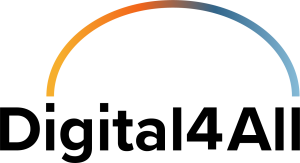MODULE 3: Design and develop digital educational content and activities for digital inclusion
Topic outline
-
-
This module equips participants with the skills and knowledge to design, develop, and evaluate digital educational content that promotes inclusivity and accessibility in higher education. It introduces the importance of accessibility, highlighting the challenges faced by diverse learners and the role of inclusive practices in overcoming them. Participants explore the principles of the Universal Design for Learning (UDL) framework—Engagement, Representation, and Action & Expression—and learn to apply them effectively in digital course design.
Through a mix of theoretical insights and practical applications, participants engage in interdisciplinary group activities to design sample courses or modules. They utilize tools like Microsoft Accessibility Checker and WAVE to assess and refine their content for accessibility. Peer-review processes ensure collaborative learning and foster an iterative approach to course improvement.
By the end of the module, participants will be able to create accessible and inclusive digital learning environments that meet the needs of all students, promoting equity and engagement across diverse educational settings.
-
